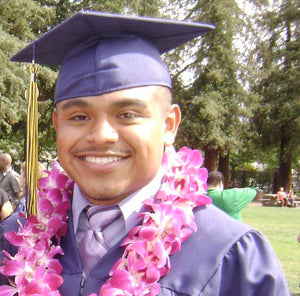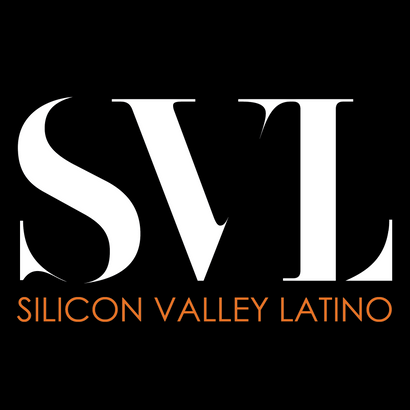A perspective on Dreamers and the Dream Act
July 31, 2012

“With hunger for a better tomorrow, I crossed that stage to receive my college degree, and today I will cross because I’m here to strive.” Liliana Campos
[i]
Editorial perspective by Jose Espinoza
While many students opted to leave school due to lack of recognition, hope and opportunities, many DREAMERS continue working hard or have completed their studies in well accredited institutions of higher learning and wait for the right opportunity to show their full potential. Now, with the announcement of partial legislation of the Dream Act, the prospect of the realization of their dream is a step closer.
For the past fifteen years I have had the opportunity to learn from and teach many Latino students at the high school level. Most of my students have been newcomers or came to the U.S. when they were little. It was not difficult to identify first generation students to the US in my classroom. They hold those fundamental principles of a great education that I also learned at home: a willingness to work hard, and an evident respect for teachers and adults in general. “The teacher is your second parent when you are at school,” a parent reminded her daughter in a parent conference; it is a joy to teach and learn from these students and to work with their parents!
The dream to succeed through hard work is alive in these students. They continue striving even though, the approximately 65,000 undocumented students who graduate yearly
[ii] face the possibility of deportation, find out that they don’t qualify for the FAFSA, scholarships or other opportunities, such as jobs, offered to them during high school. I remember how, in high school, students were highly encouraged to apply for jobs with high tech counterparts such as Varian Computers, Hewlett Packard, and Lockheed Martin among others. It didn’t feel good when I didn’t “qualify” as my other peers; I was so ready, and capable! Since I didn’t pursue a career as an engineer in electronics or lawyer, I opted for my other choice, to become a teacher and instill in my students a persistent attitude to achieving their dreams. Consistent with this idea, a few months ago, a sophomore at UC Berkeley shared with my students how her family sold tamales in order to send her to college; others financed their education working two or three jobs. Julio Navarrete, in his testimonial,
Teaching While Undocumented, epitomizes the attitude many DREAMERS have firmly believed and chosen to follow when he says,
“We need to educate ourselves. Even if the possibility to have a career isn’t available right now, when things change you will have the skills necessary to be successful.” [iii]
While many students have been able to continue pursuing a good education despite the uncertainties, many others were misinformed or highly discouraged by the poor prospects of getting accepted to a college without a social security, enough financing or the dim possibility to getting a job after graduating from college. Who could blame them if they chose to leave school and start working if they had an opportunity to do so? How could I convince some of my students to continue their education when they asked, “why even try if I will not be able to get a job after I graduate from college?” They desperately needed something to look forward to; hope was not there for them.

I join in celebration with the DREAMERS who rejoice in President Obama’s recent announcement
[iv] of legislation that will grant them work permits, and the possibility of adjusting their status in the U.S. Many of my ex-students are part of the 800,000 who qualify; they now have something more concrete to look forward to. The students have been raised and educated in the U.S. and have been active contributors to this country for a long time; it is only logical to make the move of a brain gain instead of the other possibility. While the discussion to the issue of immigration is a much broader one, this step is in the right direction.
It is necessary for middle schools, high schools, colleges, and the private sector to establish working relationships to create mentorships, internships, scholarships, and other creative opportunities for students who might have a desire to pursue careers in the various fields of those businesses. Pairing students with a mentor, exposing them to a working environment and maybe offering a summer job would provide an awesome service to students. While one could say that schools attempt at preparing students for the demands of the 21
stCentury, the connection needs to be made with those businesses. This is also a great time to embrace our DREAMERS who continue their education or who have graduated and are motivated, have great potential, and want to be validated for their contributions past and those yet to come, and be an integral part in the great fabric of our society.
Leave a comment
Comments will be approved before showing up.

 I join in celebration with the DREAMERS who rejoice in President Obama’s recent announcement[iv] of legislation that will grant them work permits, and the possibility of adjusting their status in the U.S. Many of my ex-students are part of the 800,000 who qualify; they now have something more concrete to look forward to. The students have been raised and educated in the U.S. and have been active contributors to this country for a long time; it is only logical to make the move of a brain gain instead of the other possibility. While the discussion to the issue of immigration is a much broader one, this step is in the right direction.
It is necessary for middle schools, high schools, colleges, and the private sector to establish working relationships to create mentorships, internships, scholarships, and other creative opportunities for students who might have a desire to pursue careers in the various fields of those businesses. Pairing students with a mentor, exposing them to a working environment and maybe offering a summer job would provide an awesome service to students. While one could say that schools attempt at preparing students for the demands of the 21stCentury, the connection needs to be made with those businesses. This is also a great time to embrace our DREAMERS who continue their education or who have graduated and are motivated, have great potential, and want to be validated for their contributions past and those yet to come, and be an integral part in the great fabric of our society.
I join in celebration with the DREAMERS who rejoice in President Obama’s recent announcement[iv] of legislation that will grant them work permits, and the possibility of adjusting their status in the U.S. Many of my ex-students are part of the 800,000 who qualify; they now have something more concrete to look forward to. The students have been raised and educated in the U.S. and have been active contributors to this country for a long time; it is only logical to make the move of a brain gain instead of the other possibility. While the discussion to the issue of immigration is a much broader one, this step is in the right direction.
It is necessary for middle schools, high schools, colleges, and the private sector to establish working relationships to create mentorships, internships, scholarships, and other creative opportunities for students who might have a desire to pursue careers in the various fields of those businesses. Pairing students with a mentor, exposing them to a working environment and maybe offering a summer job would provide an awesome service to students. While one could say that schools attempt at preparing students for the demands of the 21stCentury, the connection needs to be made with those businesses. This is also a great time to embrace our DREAMERS who continue their education or who have graduated and are motivated, have great potential, and want to be validated for their contributions past and those yet to come, and be an integral part in the great fabric of our society.




